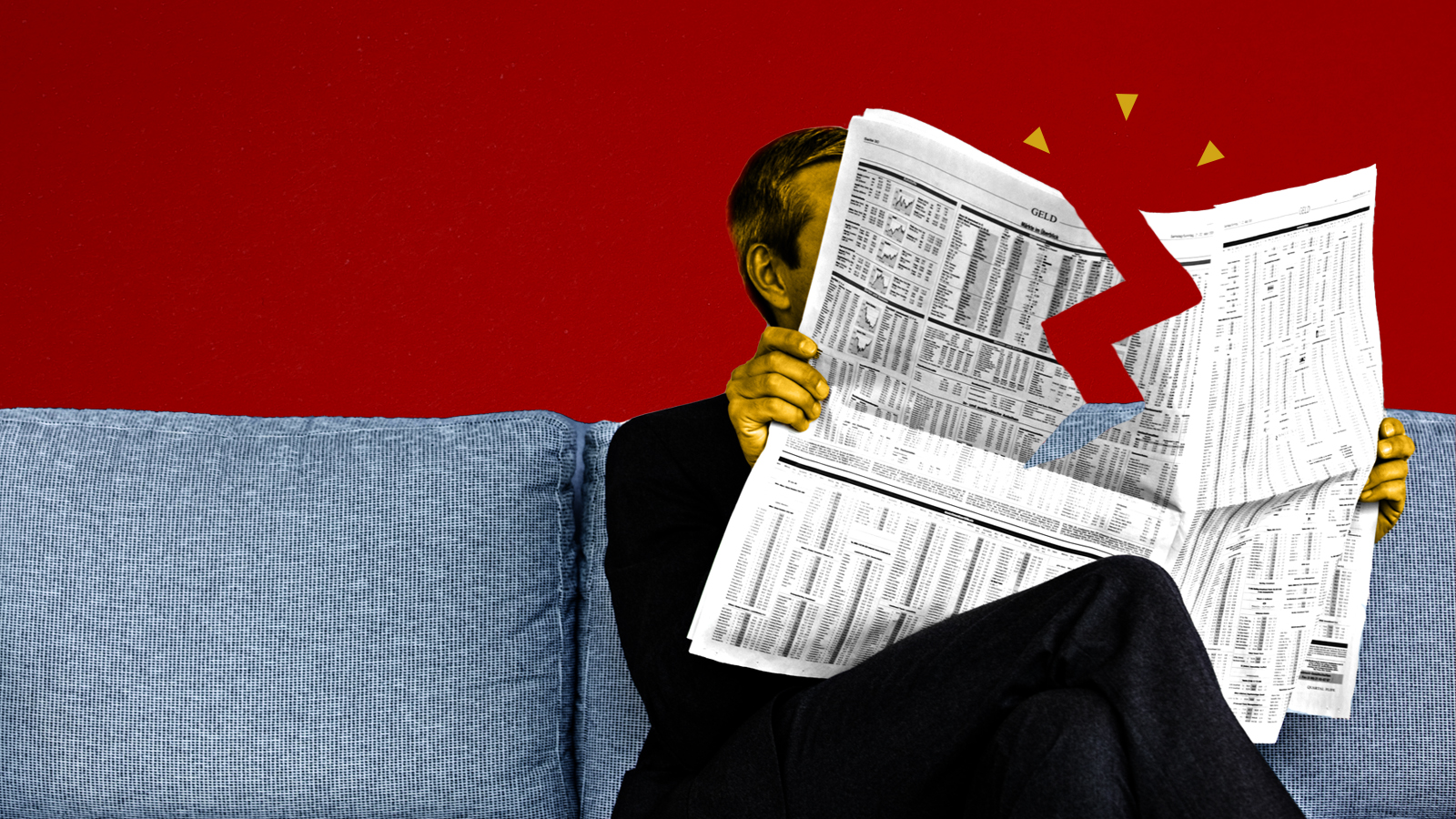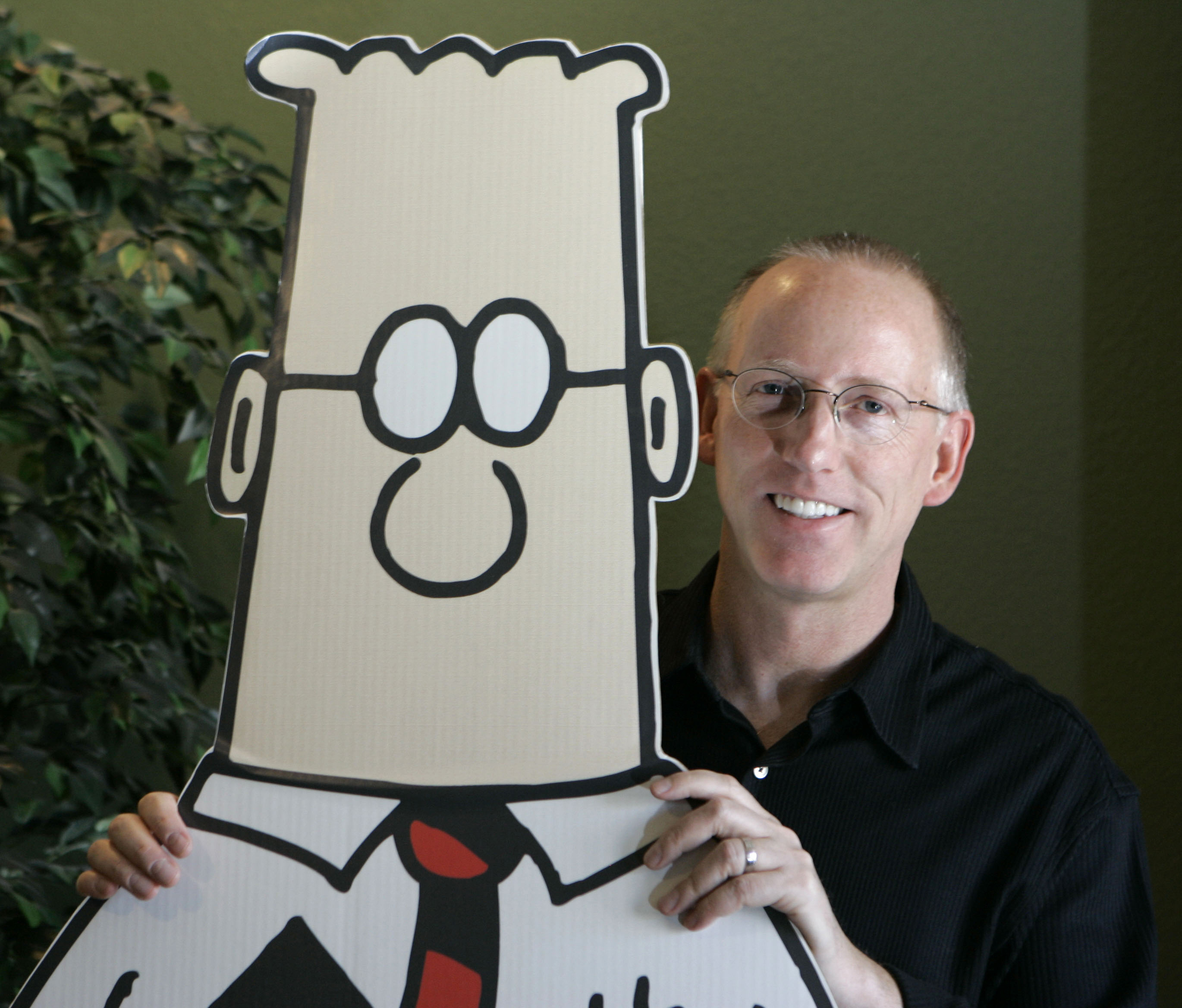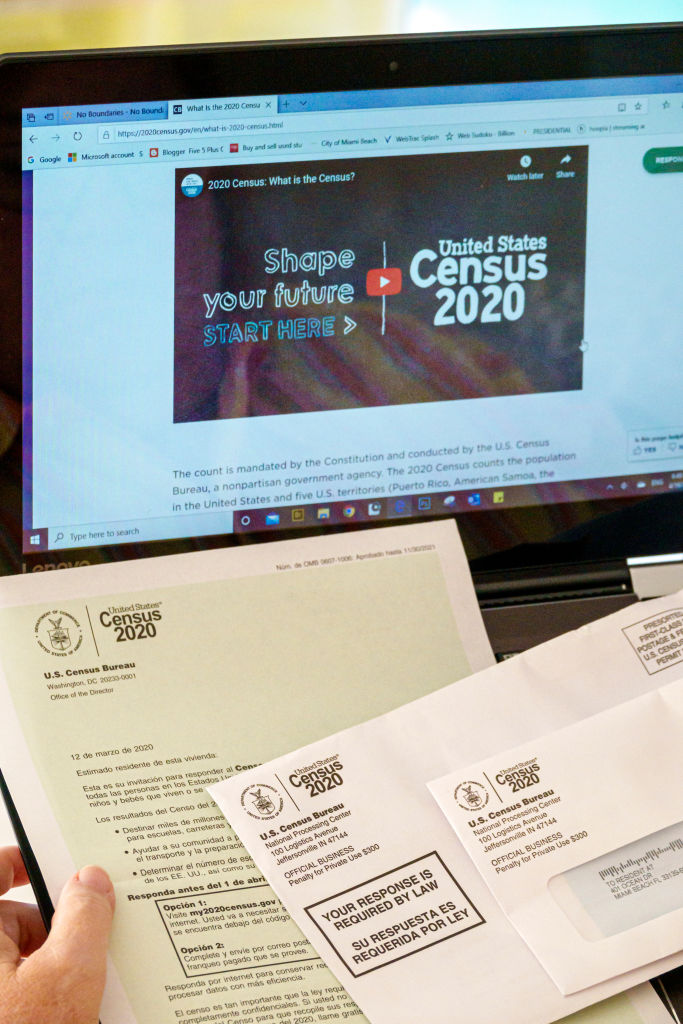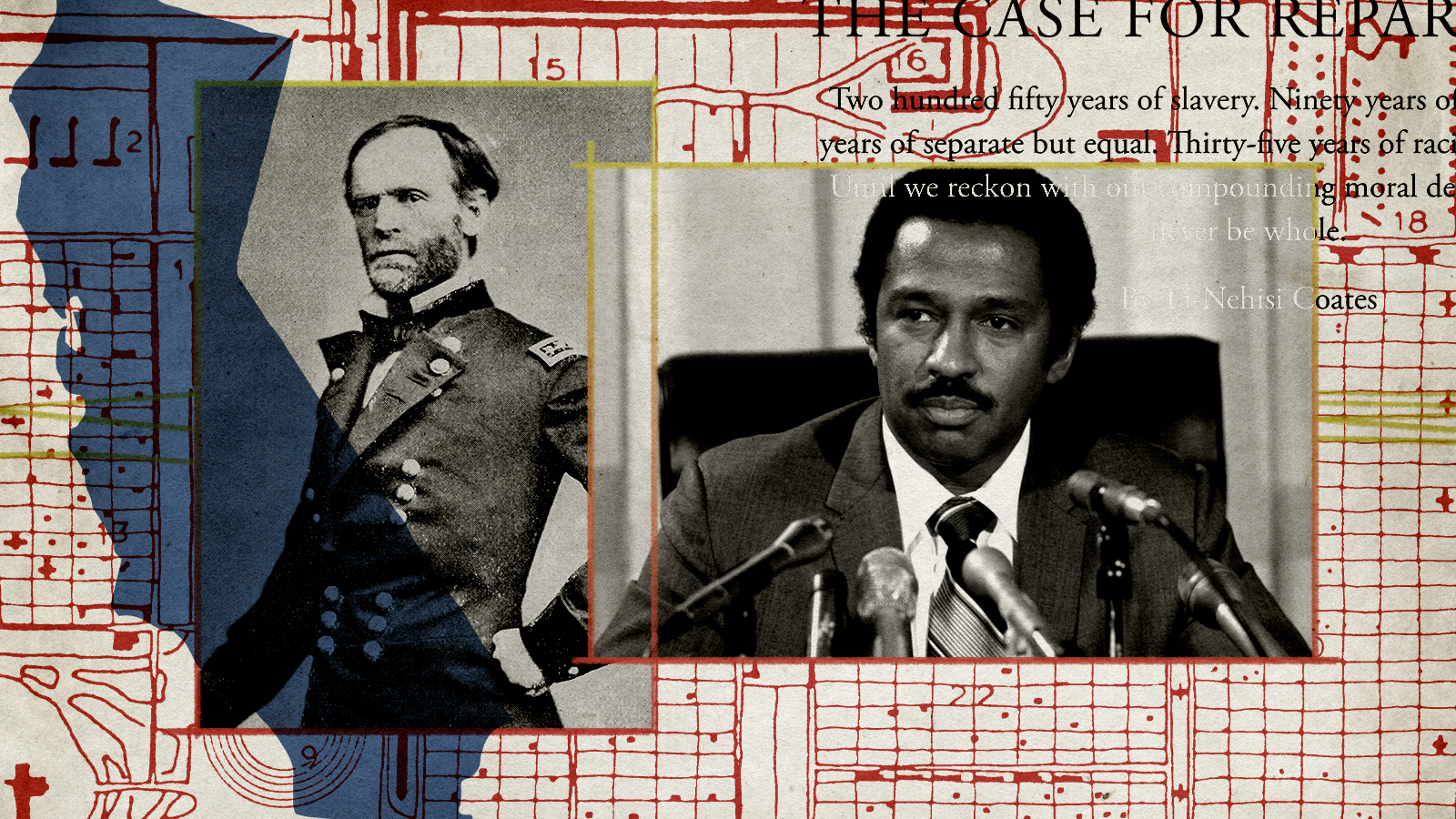The Dilbert debate: Were newspapers right to 'cancel' the cartoon?
The sharpest opinions on the debate from around the web


A free daily email with the biggest news stories of the day – and the best features from TheWeek.com
You are now subscribed
Your newsletter sign-up was successful
The comic strip Dilbert saw its syndication plummet after hundreds of newspapers dropped the satirical office cartoon due to racially charged comments made by its creator, Scott Adams. The controversy ignited during an episode of Adams' livestreamed YouTube show, when he called Black people a "hate group" and said that "the best advice I would give to white people is to get the hell away from Black people, just get the f--k away ... because there is no fixing this."
Within a day of Adams' comments, newspapers and media outlets across the United States were cutting ties with Dilbert. Gannett, which publishes newspapers such as USA Today, the Detroit Free Press, Austin American-Statesman, Milwaukee Journal Sentinel, and more than 300 others, said Adams' views "do not align with our editorial or business values as an organization." Gannett was joined by The Washington Post, the Los Angeles Times, The New York Times, and dozens more.
Adams has maintained that his comments were not racist, saying in numerous Twitter posts that he was being victimized by the media. Is he right?
The Week
Escape your echo chamber. Get the facts behind the news, plus analysis from multiple perspectives.

Sign up for The Week's Free Newsletters
From our morning news briefing to a weekly Good News Newsletter, get the best of The Week delivered directly to your inbox.
From our morning news briefing to a weekly Good News Newsletter, get the best of The Week delivered directly to your inbox.
Freedom of speech doesn't mean freedom from consequences
What Adams said on his YouTube channel is "shocking, even by the overblown standards of social media," Kansas City Star columnist Derek Donovan writes. Adams often exhibits an "antagonistic, childishly macho persona" that his followers on Twitter have come to recognize. And it goes beyond race, Donovan says. Adams has spouted "depressingly commonplace conspiracy theories and other nonsense about the usual contrarian topics: climate change, COVID-19 vaccines, the U.S. Capitol insurrection," and more. Just because Adams is allowed to "espouse white separatist garbage" on YouTube because it falls under free speech doesn't mean he should be able to do so without consequence.
Dropping Dilbert isn't about censorship, says Therese Bottomly, editor of The Oregonian. It's about editing. "Editors make decisions every day about what to publish, balancing the need to inform against the possibility of offending reader sensibilities." Adams' comments were indefensible, she writes, so The Oregonian will not "extend his reach and we will not support him."
The media is ignoring the context of Adams' comments
Adams "reacted angrily" to a public opinion poll, writes Abhijit Majumder at Firstpost. The "left-liberal mainstream media" has been "quick" to cancel him, but they're ignoring the results of the survey, which asked Americans: "Do you agree or disagree with this statement, 'It's OK to be white'?" Seventy-two percent of the respondents said they agreed, including 53 percent who are Black.
This is "reverse racism," Majumder suggests. "If half of the respondents indeed feel it is not OK to be white," that should be examined, not overlooked, he says, adding: "Identity politics begets identity politics."
A free daily email with the biggest news stories of the day – and the best features from TheWeek.com
The poll itself is 'trolly'
This survey was conducted by Rasmussen Reports, a "right-leaning pollster that produces semi-mainstream polls but is noted for its murky methods," Aymann Ismail writes at Slate. The methodology for this particular poll aren't clear, and further investigation seems to suggest Rasmussen "found about 34 Black people" who said they "disagree" or "strongly disagree" that it's "OK to be white." And that statement in itself is "a right-wing troll that originated in the forums of 4Chan," Ismail says.
Rasmussen "clearly designed" this poll to stir controversy. "Better pollsters" know that if you want to get a clear picture on Americans' views on race, you would steer clear of "terms with strong political associations like 'it's OK to be white,' or even 'Black Lives Matter.' That is far from what happened here."
Adams is following a far-right playbook
The cartoonist is serving as "a prime example of the era we live in, a time when some people will say racist or bigoted remarks and then play the victim card," Dean Obeidallah writes for CNN.
Indeed, Adams himself has often predicted his own cancellation, which is "a common tactic on the right, people amplifying their supposed anti-left credentials by suggesting their views are unacceptably politically incorrect," columnist Philip Bump writes for The Washington Post. When people like Adams become "immersed in an echo chamber where whites are the victims, they make public assertions that reflect that position." But when their actions come with consequences, "the echo chamber only grows louder." For most people, though, outside of that echo chamber, "the view is different."
Justin Klawans has worked as a staff writer at The Week since 2022. He began his career covering local news before joining Newsweek as a breaking news reporter, where he wrote about politics, national and global affairs, business, crime, sports, film, television and other news. Justin has also freelanced for outlets including Collider and United Press International.
-
 Moltbook: The AI-only social network
Moltbook: The AI-only social networkFeature Bots interact on Moltbook like humans use Reddit
-
 Judge orders Washington slavery exhibit restored
Judge orders Washington slavery exhibit restoredSpeed Read The Trump administration took down displays about slavery at the President’s House Site in Philadelphia
-
 Kurt Olsen: Trump’s ‘Stop the Steal’ lawyer playing a major White House role
Kurt Olsen: Trump’s ‘Stop the Steal’ lawyer playing a major White House roleIn the Spotlight Olsen reportedly has access to significant U.S. intelligence
-
 How an Alabama brawl became a watershed moment for race in America
How an Alabama brawl became a watershed moment for race in AmericaTalking Point "No people are obligated to endure violence without defending themselves or being defended"
-
 Can unbuilding highways undo the legacy of racism?
Can unbuilding highways undo the legacy of racism?Speed Read Roads were built through Black and Latino neighborhoods. A new federal program may reverse those efforts.
-
 Newspapers drop Dilbert comic strip over creator's racist remarks
Newspapers drop Dilbert comic strip over creator's racist remarksSpeed Read
-
 Food vendor apologizes for serving culturally insensitive school lunch on 1st day of Black History Month
Food vendor apologizes for serving culturally insensitive school lunch on 1st day of Black History MonthSpeed Read
-
 Federal working group proposes new 'Middle Eastern or North African' category for next census
Federal working group proposes new 'Middle Eastern or North African' category for next censusSpeed Read
-
 Why California is considering reparations for racism
Why California is considering reparations for racismSpeed Read And why the idea is spreading
-
 The Week Unwrapped: martial lawlessness, asteroid action and statue sparring
The Week Unwrapped: martial lawlessness, asteroid action and statue sparringpodcast Should the culture of the British army face greater scrutiny? Can Nasa deflect asteroids away from earth? And should London’s statues be made more diverse?
-
 ‘Putting inmates to work should be done not to humiliate but rehabilitate’
‘Putting inmates to work should be done not to humiliate but rehabilitate’Instant Opinion Your digest of analysis from the British and international press
